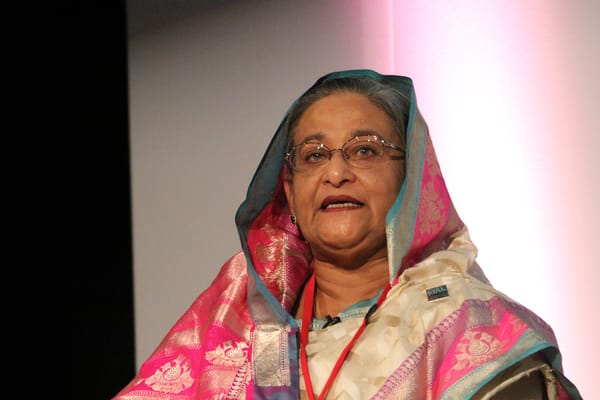NEW DELHI: The 12th Bangladesh general elections threw up no surprises. The results of Sunday’s voting haven’t been declared yet but the ruling Awami League by all accounts is headed for absolute majority. Unofficial results say the party has won over 220 seats in the 300-member parliament. Independents come a distant second, with a little over 60 seats (most of these are propped up by the ruling party). This means the Awami League will form the government for the fourth consecutive term and its leader Sheikh Hasina will be prime minister for a record fifth term, the world’s longest serving female head of government.
Turnout was low (40 per cent) amid violence in the lead-up to the polls. The Opposition largely stayed away from the electoral process, claiming the vote was rigged even before voting began. The same sentiment has also been shared by the Western media and electoral watchdogs.
Asked about it at a press conference, Foreign Minister AK Abdul Momen shot back: “Why are you so worried about the western countries? Don’t you believe in yourself? The people have voted for the government… it’s a big deal. I’m not interested in what the foreigners say.” He claimed that the election took place in a free and fair manner and that there were no fake votes, reports Prothom Alo.
Not everyone in Bangladesh is as enthusiastic. Anu Muhammad, a former professor of economics at Dhaka’s Jahangirnagar University, calls it a “contrived” election “signalling a renewal of authoritarian governance”.
So what lies ahead? “Existing institutions, which are already not functioning as they should, will cease to operate in the true sense. Looking ahead, this trend may take an even more extreme turn. Notably, institutions such as the Election Commission, the National Human Rights Commission, the judiciary, and the universities, which hold substantial influence on society, operate through invisible directives. This election will exacerbate this process. The current centralised system, predominantly controlled by the one per cent, will solidify into an absolute state, leading to increased inequality and centralisation of wealth. The root cause of heightened inequality in Bangladesh lies in the absence of accountability and transparency,” Muhammad wrote in The Daily Star.
Related Posts:
















